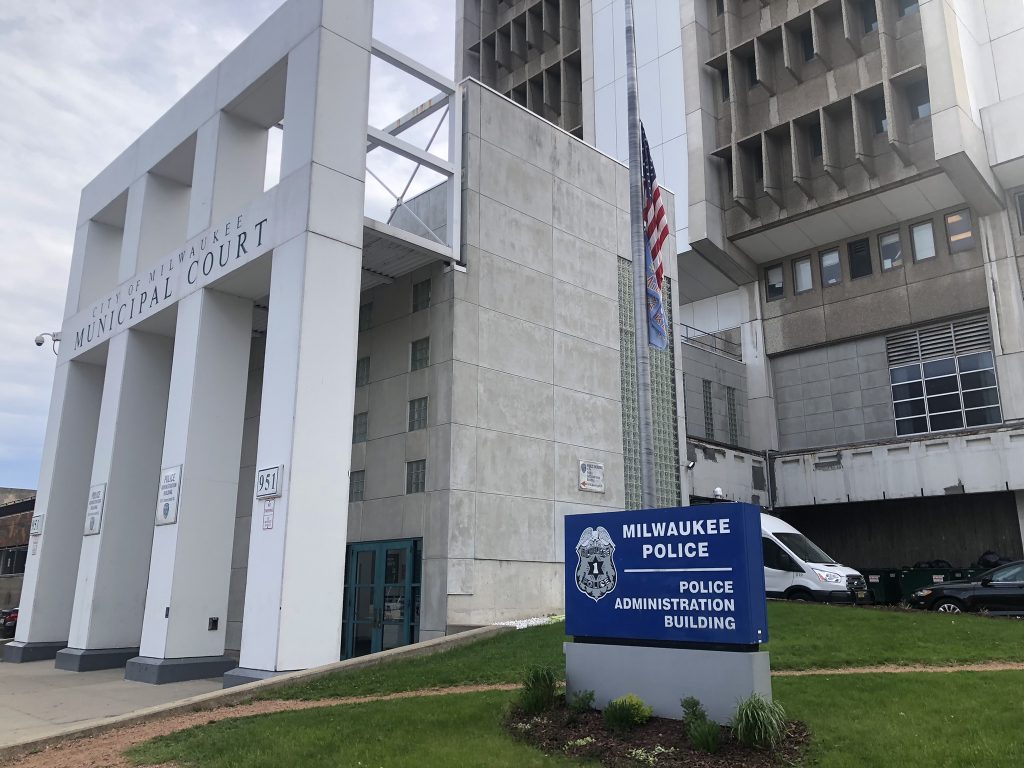Police Pledge Transparency Now That They Have Policymaking Power
Deal that gave Milwaukee a 2% sales tax also stripped Fire & Police Commission of much of its authority.
The citizen-led Milwaukee Fire & Police Commission (FPC) has lost its status as “the most powerful” such body in the country.
The police and fire chiefs now set policies for their departments, drastically reducing the control citizens had over public safety practices in Milwaukee. The change was instituted as part of Act 12, the Republican-controlled Wisconsin State Legislature’s law that grants more funding to local governments across the state and includes a number of unrelated policy restrictions.
“We still intend to communicate to the public through the FPC on those areas that will be of great interest to the public,” said Milwaukee Police Department (MPD) chief of staff Heather Hough to the Common Council’s Public Safety and Health Committee on June 29. “It’s just so new and foreign.” She said MPD, as an entity, did not request the change. “This is not a world we know or how to navigate.”
The Common Council can overrule a chief to change a policy, formally a Standard Operating Procedure (SOP), but only by a two-thirds (10-member) vote.
“We have not settled, and we have not begun to discuss what we will have to discuss which is how do we move forward now with the council’s involvement,” said committee chair Alderman Scott Spiker.
The alderman said one option is to rely on the commission to guide how the council should act. “They are still a valuable body. They still have technical expertise backgrounds that not necessarily all of the council members have,” said Spiker. “We can consult them in deciding whether to do that modification or suspension of an SOP.”
The council previously had no policy-making authority over public safety, and could only pass resolutions asking the commission to act. Now things have been reversed.
Alderwoman Milele A. Coggs raised one key concern as a result of the change: public notice. The FPC must adopt and publish any of its SOP changes in a public meeting. MPD and the Milwaukee Fire Department are not subject to such requirements.
Hough emphasized that MPD was still trying to figure out the process. “This administration is committed to transparency in all that we do. We have not touched any SOP and we will not until we figure out a way moving forward where we do so to include all of our intergovernmental and community partners in being transparent.”
“The FPC still has the responsibility to conduct an annual policy review,” said FPC executive director Leon W. Todd, III. “There will be transparency, there will be public notification of changes. That’s my expectation and I have no reason to think that the police department doesn’t want that as well.”
Coggs asked for as much as possible to be codified in terms of the notification and change process, noting it’s “vague in the legislation.” She thanked Todd and Police Chief Jeffrey Norman for their open communication, but said that could change with future leaders.
“I would absolutely agree. You want it to be about institutions, not people,” said Spiker.
SOPs govern a wide breadth of public safety personnel practices, including how investigations are conducted and if a vehicle can be towed. They are used as a basis for training, personnel conduct and discipline. The FPC still maintains its oversight of hiring practices, discipline of personnel and hiring and firing the chiefs.
Fire & Police Commission members are appointed by the mayor and confirmed by the Common Council to five-year terms. The commission gained substantial public attention in 2020 when it demoted Police Chief Alfonso Morales, a move the chief successfully challenged in court before accepting a settlement. But since that “kangaroo court” incident, all but one of the members have been replaced or resigned, Todd and Norman were hired and Mayor Cavalier Johnson was elected.
The new makeup hasn’t been without conflict, and Act 12 could further complicate things. The police officers’ union, the Milwaukee Police Association, is suing the commission over a 2023 policy change that would require a much faster release of body camera footage. Judge Frederick Rosa granted an injunction, temporarily blocking the policy’s implementation. Now Norman, or the council, could ultimately revoke the faster-release policy, even if the city wins the lawsuit.
The authority of the FPC is one of several such policy provisions over which the city could end up suing the state. Council members have expressed a willingness to explore lawsuits over the policy provisions of Act 12, which includes prohibitions on streetcar expansion, restrictions on diversity and equity requirements and public safety spending requirements.
If you think stories like this are important, become a member of Urban Milwaukee and help support real, independent journalism. Plus you get some cool added benefits.
Political Contributions Tracker
Displaying political contributions between people mentioned in this story. Learn more.
























“Council members have expressed a willingness to explore lawsuits over the policy provisions of Act 12,”
Keep the exploring to a minimum and hasten to the lawsuits.